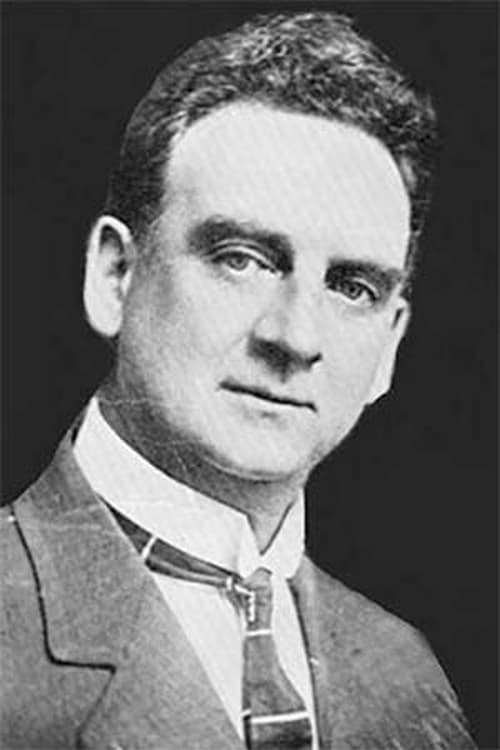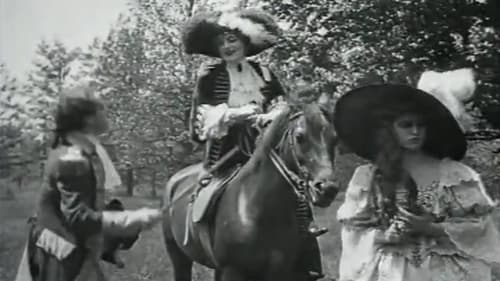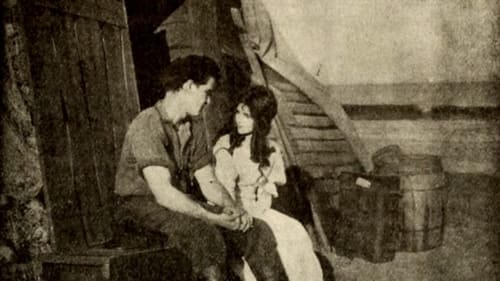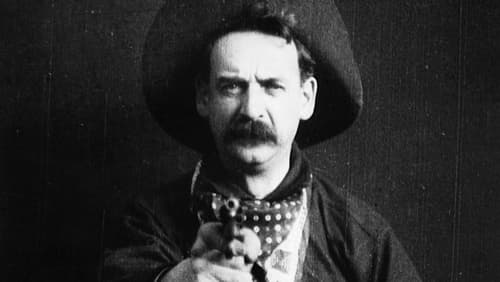
Justus D. Barnes
Nascimento : 1862-10-02, Little Falls, New York, USA
Morte : 1946-02-06
História
Justus D. Barnes (October 2, 1862 – February 6, 1946), named George Barnes in some sources, was an American stage and film actor. He is best known for his role in the 1903 silent short The Great Train Robbery, which the American Film Institute and many film historians and critics recognize as the production that first established the Western genre, setting a new "narrative standard" in the motion picture industry.
Barnes was born in Little Falls, New York. He was a veteran stage actor before he made his screen debut in 1903 in The Great Train Robbery. In that film's memorable ending, Barnes points his pistol at the camera and slowly fires all six shots at the viewer. The Great Train Robbery became one of the most successful and best known commercial films of the early silent era.
In July 1908, Barnes was hired as an actor in the stock company of the Edison Manufacturing Company, the film production company owned by Thomas Edison. In 1910, he signed on with the Thanhouser Company in New Rochelle, New York. Between 1910 and 1917, Justus appeared in more than seventy films for the Thanhouser, usually in the role of a villain. He played Ham Peggotty in David Copperfield, the earliest known film adaption of the 1850 novel by Charles Dickens. He also played supporting roles in Nicholas Nickleby (1912), Aurora Floyd (1912), and A Dog of Flanders (1914).
In 1917, he was released from the Thanhouser Company due to the company's financial issues. Barnes made his final onscreen appearance for the Edison Studio in Cy Whittaker's Ward, in 1917. After retiring from acting, Barnes moved to Weedsport, New York, where he worked as a milkman. He later owned a cigar store. Barnes died on February 6, 1946, in Weedsport at the age of 83. He is buried in Weedsport Rural Cemetery, in Weedsport, New York.

Simmons
Returning to the village of Bayport after twenty-two years, retired sea captain Cyrus Whittaker finds the community under the power of political boss Herman Atkins. Cy opposes Atkin's choice for the position of teacher and helps to elect Miss Daws instead, thus earning the enmity of the politician. One day, a young girl named Emily Thomas arrives with a note from Sarah Oliver, a relative of Cy, explaining that the girl is the daughter of his old sweetheart and that her father is in jail and her mother dead.

Vincent's Uncle
Adele has grown up in a tenement, but she longs for greater things. She gets her chance at the stage when her mother runs into an old friend, Blanche. Blanche has been working steadily in the theater, and she helps Adele get work. The young girl finds romance with Vincent Harvey, an aspiring composer. One day Adele suffers an accidental fall out of a window.

Ewing Webster
An energetic and vivacious Falstaff comedy with good pacing combining physical comedy (without slapstick) with situation comedy.

A chorus girl in a theatrical show is being pursued by a "Stage Door Johnny" while her somewhat prudish boyfriend tries to "rescue" her from a life in the theater. Old Jane, the show's wardrobe mistress, takes the girl under her wing and gives her advice on how to handle her situation.

Paul's Wealthy Uncle
The girl's father is Gunga Ras, a Hindu student of the occult. The girl's uncle is found dead and the lover blamed, but she personally investigates the crime. The father is suspected, but it develops that the death was really caused by use of liquid air in the hands of another

Jack's Father
A young heiress was wooed and won by a man whom she believed would make her happy. She told of her engagement to her uncle, who was also her guardian, and was pleased and surprised when he interposed no objection. The uncle was a crafty man, however. His accounts of the estate were in a very bad way and he feared that if his niece married and his books were examined he might land in the penitentiary. Consequently he was not anxious to see her a happy bride, but being crafty to know what the worst thing for him to do would be to object to the man she selected, so he pretended to be very fond of the suitor and praised him on all occasions.

N.Z. Wood
The film's heroine is a dancer of world-wide reputation who, in the days of her struggle, has offended the story's villain.

Film realization of the Biblical story of Joseph, played here by future director James Cruze.

A society woman who lives in the suburbs near the sea had laid her plans to insure the marriage of her daughter to a wealthy young banker.

An American family in need of some money decides to pull a little innocent scam on a wealthy English relative.

Father
Unable to find help to work his farm, a farmer gets a bright idea--he advertises that any man willing to work on his farm will be permitted to court his two daughters. The girls and their mother don't take kindly to being offered as an "incentive", so when some college boys show up looking to take advantage of both offers, the girls come up with a plan of their own.

Director
A recreation of the Thanhouser Studio fire of 13 January 1913, it includes the rescue of a small child from the flaming building.

: Count Eberhard von Alderstein was one of the robber barons who flourished in Europe during the Middle Ages. He was cruel and lawless, plundered the merchants who passed his castle, and cared for no one, except his little sister, Ermyntrude.

Mage Gaspar
Following a bright wandering star, three magi from the East travel to Bethlehem of Judea to meet a very special newborn baby. Meanwhile, King Herod, driven by a hideous prophecy, orders him to be found and murdered.

Doctor
Two girls fall in love with the same man. Out motoring one day they are thrown from the machine and carried to the hospital. One of the girls poisons the other. The story swings into a very pleasant finish.

Father on Farm
One little girl lived in the country. She was a model child, everybody admitted it, but it cannot be denied that she was more or less of a cry-baby and a coward.

Lady Anne's Father in 1770
The ghost of a selfish, inconsiderate woman must make up for her past transgressions by making sure that her descendant marries the man who is right for her.

Uncle Ralph
With The Old Curiosity Shop and David Copperfield, both released in 1911, and Nicholas Nickleby in 1912, Thanhouser established itself as producer of the best Dickens adaptations in American film.

Ham Peggotty (in part one)
Thanhouser Company three-reel silent film based on Charles Dickens’s story of an English lad's tribulation-filled journey to adulthood, Thanhouser released the three films over the course of three weeks beginning on October 17, 1911, one 1,000 foot reel per week.

the girl's father
The son of wealthy Lord Stanley has been disinherited and thrown out of the house. He travels to Africa for fortune and adventure. He finds a job as a horse groomer for a wealthy family. He falls for the family's daughter, but they are against the relationship because they think he's just a common stablehand.

Bandit Who Fires at Camera (uncredited)
Um dos primeiros filmes produzidos no cinema americano, notável como um dos primeiros filmes que apresentou uma narrativa, que contou uma história. O funcionário da estação de trem é assaltado e deixado amarrado por quatro homens, em seguida, eles roubam o trem ameaçando o operador. Eles roubam todo o dinheiro e atiram num passageiro antes de fugir. Uma menina descobre o funcionário amarrado e avisa ao xerife, que sai junto com seus homens à caça dos bandidos. Algumas cópias do filme tem algumas cenas colorizadas a mão.








